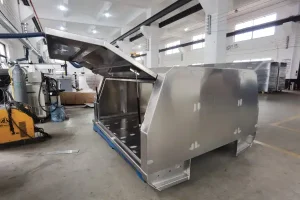Maximizing Efficiency: Choosing the Right Inverter for Your Solar Panels

Maximizing the efficiency of your solar power system starts with selecting the right inverter. As the pivotal component responsible for converting the direct current (DC) electricity generated by solar panels into usable alternating current (AC) electricity, the inverter plays a significant role in overall system performance. Understanding your options and choosing the most suitable inverter is essential for optimizing energy production and maximizing your return on investment.
Types of Inverters
- String Inverters: These inverters are a common choice for residential and small commercial solar installations. They are cost-effective and relatively simple to install, connecting multiple solar panels in series to convert DC electricity into AC electricity. However, string inverters are susceptible to performance issues if shading or panel malfunction affects any part of the string.
- Microinverters: Microinverters are installed directly on individual solar panels, offering several advantages over string inverters. They operate independently, which means each panel’s output is optimized regardless of shading or malfunctions in other panels. This results in higher energy harvest, enhanced safety, and improved system monitoring.
- Central Inverters: Ideal for utility-scale solar projects, central inverters are capable of handling large amounts of power from multiple strings of solar panels. While they offer high efficiency and reliability, central inverters may experience performance degradation if one string is affected by shading or malfunction.
Factors to Consider
- System Size: The size of your solar power system will influence the type of inverter you choose. String inverters are suitable for smaller installations, while microinverters are better suited for larger systems or locations with shading issues.
- Efficiency: Inverter efficiency directly impacts the overall energy yield of your solar system. Higher efficiency inverters translate to greater electricity generation and cost savings over the system’s lifetime.
- Monitoring and Maintenance: Consider inverters with advanced monitoring features that allow you to track system performance in real-time and identify any issues promptly. Additionally, assess the ease of maintenance and warranty coverage when selecting an inverter to ensure long-term reliability.
By carefully considering the different types of inverters available and evaluating factors such as system size, efficiency, and monitoring capabilities, you can choose the right inverter to maximize the efficiency and performance of your solar power system.






